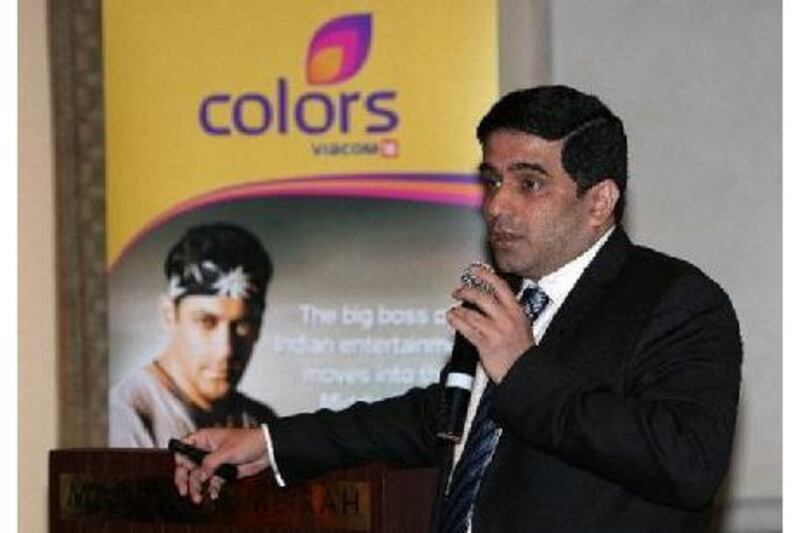Middle East media industry commentators have long noted the huge oversupply of certain types of media, when at the same time there are gaping holes in the market for others. Due to these imbalances, the industry has been hit by a mass of closures since the onset of the downturn, while a flock of new players has entered the market.
In a seemly contradictory scenario, international giants such as Conde Nast have said they intend to enter the Middle East market while local publishers such as CPI plan a raft of new titles. And yet, one fifth of titles have shut down since the beginning of last year. Likewise, industry commentators say that the vast majority of the Middle East's 450-plus TV stations are uninspiring, unwatched and unprofitable. And yet, two new Arabic news stations are tipped to launch soon, and the TV giant Arab Media Corporation (AMC) said last week it was bringing six new channels to the region.
Despite the overcrowding in some areas of the industry, executives say there is strong growth potential in areas such as digital and radio, and for premium content targeting Arabic and Asian audiences. Abdel Ghani Ali, the chief financial officer at AMC, says that while about only 120 of the region's TV channels are of genuine interest to viewers, there is still room for growth in certain areas. "Satellite has a lot of 'sandwich' channels - anyone with US$200,000 (Dh734,600) can launch a channel. In reality this is not really the entertainment that people are looking for. People are looking for premium content," says Mr Ali. "The Middle East is a place where, for the media, there is a very high potential.
"A lot of people are coming in and investing in the Middle East." The AMC unit Arab Digital Distribution (ADD), which runs the pay-TV "bouquets" ART, Pehla and Firstnet, said last week it was launching the Indian entertainment channel Colors in the Middle East and North Africa. The channel, which is run by Viacom 18 Media, a joint venture between the US-based Viacom and the Indian company Network18, will be aired on ADD's Pehla package, which targets Asian audiences.
Mr Ali says Colors is one of six new channels he hopes to bring to the region, in a drive specifically targeting Asian audiences that he hopes could give a 20 per cent to 25 per cent boost to the Pehla subscriber base, which currently stands at 200,000. There is also space in the market for creators of quality Arabic content, says Imad Kublawi, the chief executive of IK Consult and regional partner of Results International, a global consultancy firm that specialises in mergers and acquisitions within the communications industry.
"It seems to be crowded looking at the number of titles, but it's not crowded in terms of content. There are huge opportunities and gaps in the market," he says. Tony Orsten, the chief executive of Abu Dhabi's media zone twofour54, points to two areas of potential growth in the regional media industry. "There are two very interesting gaps in the market. One is gaming, where there is a fantastic opportunity," he says.
"The other is the internet, e-commerce and digital, where we're finding lots of interesting ideas coming to us. It's a real untapped market for the Middle East." There are currently 92 licensed partners at twofour54, and the media hub says it will have "well in excess of 100" partners by the end of the year. The centre launched with heavyweights such as CNN, the BBC and the Financial Times on board.
International media companies see long-term growth in the region, says Mr Orsten. "These companies are looking to the Middle East as a fixed point … where growth or expansion of their business is pretty much guaranteed. They're not coming here for a year to see what it's like," he says. Jamal al Sharif, the managing director of Dubai Media City and Dubai Studio City, says three major media companies are expected to open offices in the emirate's media cluster by the end of the year.
"We have a couple of multinational corporations launching Middle East offices in Dubai. Two are [launching] in October, and one in November," he says. Mazen Nahawi, the president of News Group International, a news management company based in Dubai, says international TV companies have a natural advantage over many of the government-run media outlets in the region. "The international broadcasters are coming in with different expectations. They are commercially driven and therefore are much more careful in their investments.
"Any government investment in private enterprise will usually lead to a certain level of inefficiency at that company. With privately owned organisations, the risk of that inefficiency is substantially lower," he says. Mr Nahawi adds that, with a few notable exceptions, government-owned media was mostly "weak", with private organisations better poised to offer "real value and top-quality journalism".
While broadcasters such as Al Jazeera demonstrated "excellent reporting", he says, "by and large, government investment in media should be kept to a minimum". bflanagan@thenational.ae





